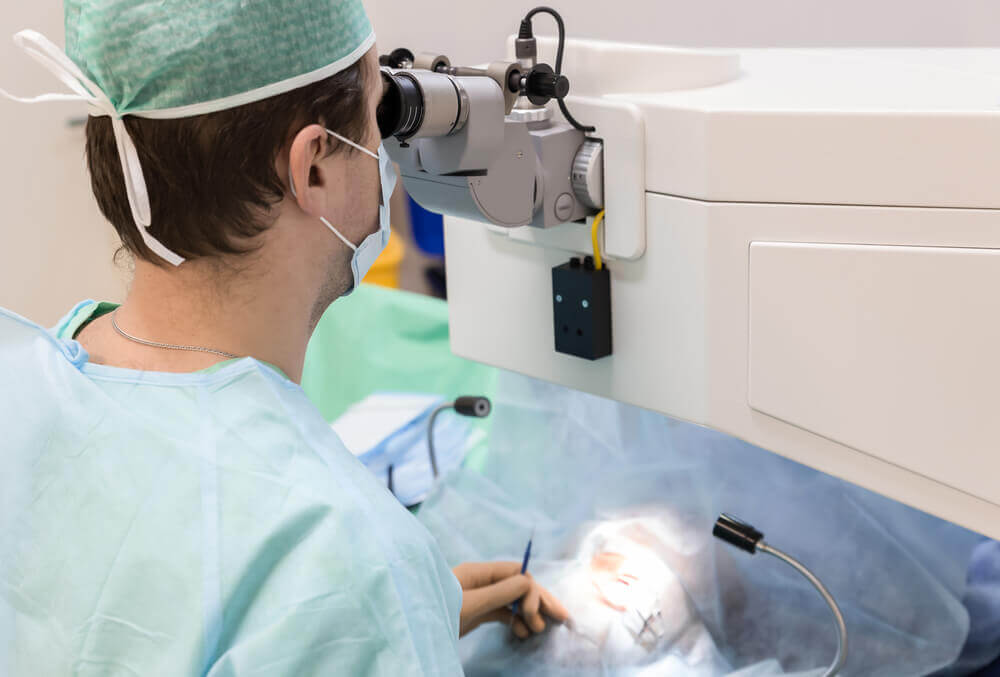Risks and Benefits of Lasik Eye Surgery
Medically reviewed by Beeran Meghpara, MD,
Director of Refractive Surgery and Co-Chief of the Cornea Service, Wills Eye Hospital

Is LASIK safe? Yes, LASIK is safe for most people. It’s a common question, and the answer is supported by over 25 years of experience and countless successful procedures.
LASIK, or laser-assisted in situ keratomileusis, is the most popular corrective eye procedure. It’s used to fix vision problems such as nearsightedness, farsightedness, and astigmatism, with as many as 95% of patients achieving 20/20 vision or better. Since its approval by the FDA in 1999, LASIK has been performed an estimated 20 to 25 million times. But whether it’s right for you requires a careful analysis of the risks and benefits of LASIK eye surgery, as well as who is (and isn’t) a good candidate.
Table of Contents
1. How Does Laser Eye Surgery Work?
The purpose of LASIK eye surgery is to permanently reshape the cornea, the clear protective covering over the eye that helps with focus and light refraction.

To do it, doctors use a precise laser to make a small cut in the top layer of the cornea. This is then folded back to reveal the layer beneath, which is reshaped using another laser. When the shape is corrected, the top layer is folded back into place, and the procedure is done.
LASIK is a type of refractive surgery, the purpose of which is to reshape the cornea and correct vision. Other types of refractive eye surgeries include PRK (photorefractive keratectomy) and ICL (implantable collamer lens) procedures.
2. LASIK Safety Profile
When performed by a qualified professional, LASIK is a quick, safe procedure with minimal risk or discomfort. It’s also one of the most well-researched eye procedures, with decades of data on its safety and effectiveness.
Success Rates:
To date, research shows that
3. Who Should Not Have Laser Eye Surgery?
Laser eye surgeries such as LASIK are not recommended for all patients. Key reasons you may need to consider alternatives include:
Poor eye health: Conditions like severe dry eye, keratoconus, infections, or ongoing inflammation.
Frequent prescription changes: If your vision is still changing, surgery may not be effective long-term.
Thin corneas: Insufficient corneal thickness can increase surgical risk.
Age restrictions:
Under 18: LASIK is generally not recommended due to ongoing eye development.
And lastly, as not all issues are obvious, your doctor will perform a thorough assessment before recommending surgery.
4. How Long is Laser Eye Surgery?
LASIK is a quick procedure, and generally takes just 20 to 30 minutes to perform. Most of this time is spent preparing the eyes for surgery, a process that includes numbing the eyes and getting the patient comfortable. Reshaping the cornea with a laser—the key part of the LASIK process—takes about 10 to 15 minutes.
5. How Long Does it Take to Heal from LASIK Eye Surgery?
It can take up to six months to fully heal from LASIK; however, most patients feel totally normal after a day or two. Post-operative care is straightforward and requires using antibiotic and anti-inflammatory eye drops, not touching your eyes, and keeping your eyes well-protected from irritants such as dust, soap, and water.
6. Is Laser Eye Surgery Worth It?
The answer to this question is different for everyone. But if you just look at LASIK’s safety and efficacy record, then yes, it’s worth it. LASIK offers the potential for permanent freedom from glasses or contacts, as well as the potential for 20/20 vision. And because the risk of complications is low, you can feel comfortable deciding to undergo the procedure under the guidance of an experienced physician. If you’re not sure LASIK is right for you, alternate refractive procedures such as PRK or ICL could be the way to go.
7. Other Frequently Asked Questions About LASIK
What Conditions Make Someone a Bad Candidate for LASIK?
Conditions that may decrease LASIK safety or efficacy include glaucoma, diabetes, dry eyes, rheumatoid arthritis, lupus, and corneal disease.
What Can You Not Do After LASIK?
You will not be allowed to drive for at least 24 hours after your procedure. You will also need to avoid having any contact with water, so no showers or workouts in the first 24 hours, and no swimming, steam rooms, or saunas for two weeks.
Want to Know More? Speak with a Wills Eye Physician
LASIK is safe, but the only way to know for sure if it’s right for you is to speak with an eye doctor. Explore our website to learn more about corneal health and procedures, and get in touch to schedule a LASIK consultation with a Wills Eye physician.
References
Joffe, S. N. (2021). The 25th anniversary of laser vision correction in the United States. Clinical Ophthalmology, Volume 15, 1163–1172.
